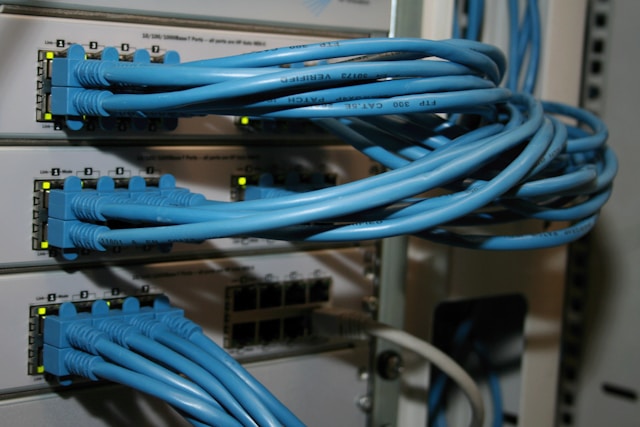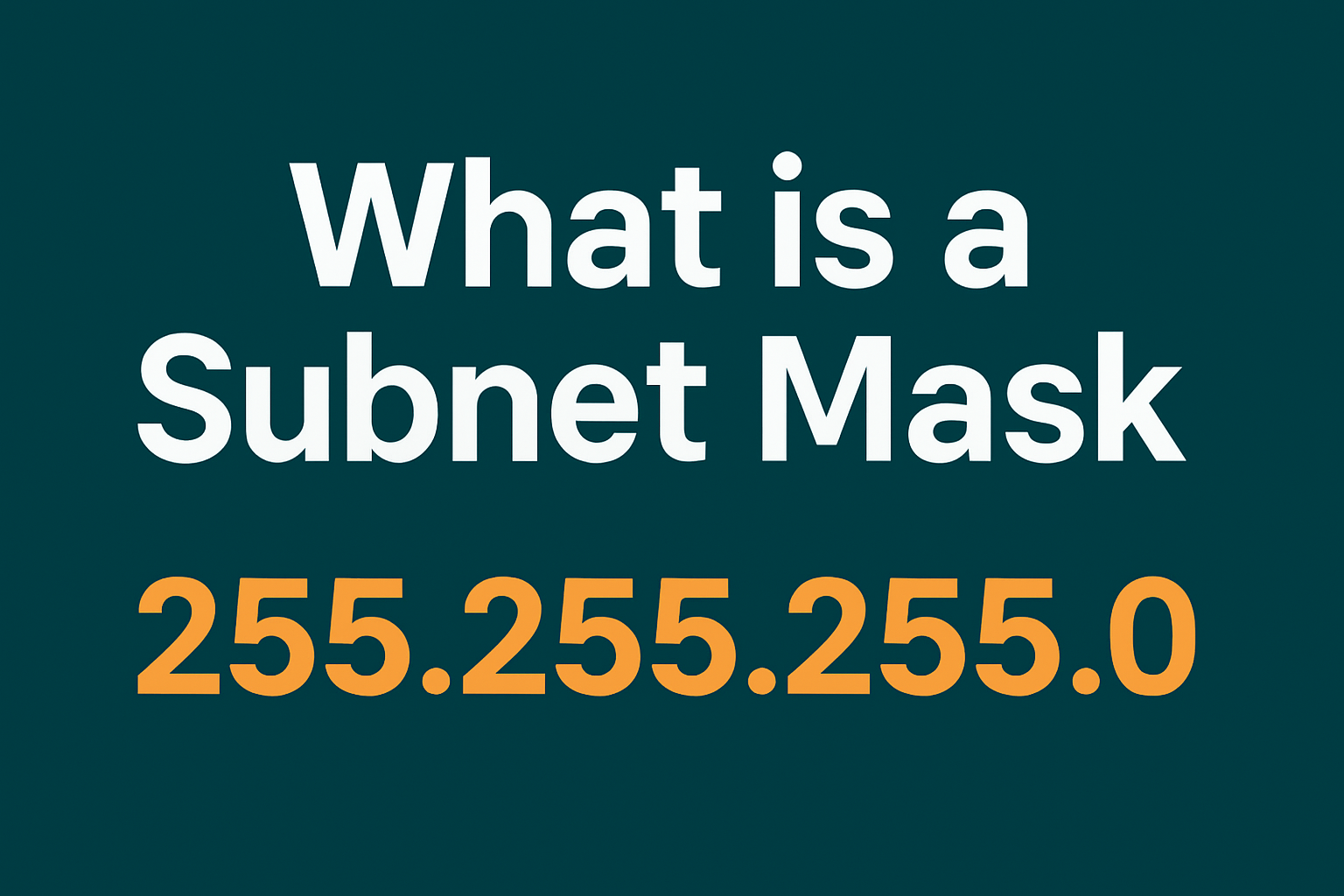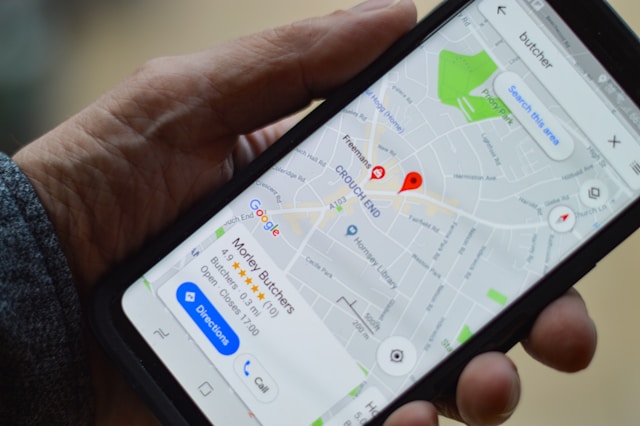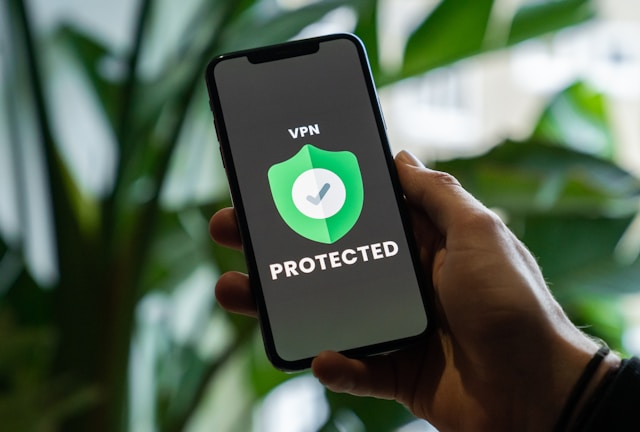Are you interested in using an IP tracer but are not sure of the best way to track an IP address? Then, you’ll find our explanations useful for getting the job done fast. We provide a few different options so you can use the one that best matches your use case.
For example, you can trace IP addresses to get more potential leads with geolocation marketing. This is common practice, but you must follow the rules and regulations to avoid breaking the law.
Keep reading for the different ways you can trace an IP address!

Table of Contents
What Is an IP Tracer?
An IP tracer is a tool or software used to track the location and details of an IP address. It works by sending requests to a server associated with the IP address. Then, it gathers information such as geographic location, ISP, and sometimes the network’s hostname.
IP trackers are often used for network diagnostics, thereby identifying malicious activities or tracking the origin of cyberattacks. However, they can give a general idea of location. It’s not always perfectly accurate, as VPNs or proxies can mask the true IP addresses.

How To Trace IP Address: Top 3 Ways
Now, let’s continue to learn the best methods for tracing IP addresses. The various methods will help you discover the one most suited to your needs. Hence, you can trace an IP address quickly without a steep learning curve.
1. Using Command Prompt
To trace an IP address, you can use tracert (Windows) or traceroute (Mac/Linux) command. This command traces the route that data packets take from your computer to the target IP, thereby showing each hop between servers.
Furthermore, it provides the IP addresses of each server along the way. This helps you identify the origin. It’s especially useful for troubleshooting network issues, as it highlights any delays or failures in the path.
2. Using Online IP Lookup Tools
Several websites offer IP lookup services, such as IPinfo, WhatIsMyIP, or IPvoid. Simply input the IP address you want to trace; these tools will provide information. Top examples include session history, record of activity, and internet traffic.
While the accuracy can vary, it’s a quick and easy way to gather basic details about an IP. However, it also depends on the specific IP tracking technology that you use. Some tools are better than others, so make sure to look around.
3. Using WHOIS Lookup
WHOIS is a public database that stores information about registered domain names and their associated IP addresses. Therefore, you can use a WHOIS lookup tool to trace an IP back to its registrant or organization.
The data you can uncover includes contact information, such as the network administrator’s name and email. Furthermore, it often adds details about the ISP. This method is especially useful for tracing IPs associated with websites.

Top Reasons To Trace an IP Address
Now, let’s focus on why you might want to trace an IP address. Therefore, you can better understand the use cases for the technology. Here are the top reasons to consider:
- Network troubleshooting: Tracing an IP helps diagnose network connectivity issues. Furthermore, it identifies bottlenecks or failed connections by revealing the route data packets take across networks. This helps IT teams pinpoint problematic nodes, optimize routes, and improve overall network performance.
- Identifying cyber threats: Tracing an IP can help detect cyberattacks, like hacking attempts or DDoS attacks. Hence, you can better protect online assets during the entire visit of other users.
- Tracking fraudulent activities: Companies and individuals use IP tracing to combat online fraud. Therefore, you can identify the location of users engaging in suspicious activity. Top examples include phishing or unauthorized transactions. Businesses can also take action to secure accounts or block access from those IPs.
- Geolocating users: IP tracing is commonly used for accessing geolocation data, which helps websites tailor content based on user location. This includes showing local language preferences and offering region-specific services. Additionally, you can restrict access to certain content, like streaming media, due to geographic licensing agreements.
- Law enforcement investigations: Law enforcement agencies use IP tracing to track down cybercriminals involved in illegal activities. For example, hacking, fraud, or illegal downloads. Furthermore, by following the IP’s trail, investigators can identify and locate suspects. This sometimes leads to arrests in cases involving serious digital crimes.

Can an IP Tracer Detect the User’s Name or Personal Information?
An IP tracer cannot directly detect a user’s name or personal information. It only provides details like the IP’s geographic location, ISP, and sometimes the network’s hostname. However, an IP address alone doesn’t reveal personal data such as names and phone numbers.
To access that information, one would need legal authority, such as a subpoena, to request user details from the ISP. Also, privacy tools like VPNs or proxies can further mask a user’s identity by IP blocking.

IP Tracers: Are They Worth Using?
Yes, IP trackers are worth using depending on your use case. For example, when taking part in geo affiliate marketing, knowing the location of your leads is ideal. It leads to higher conversion rates and more sales.
Give the different IP tracers on the market a try to see what’s available. You’ll be pleasantly surprised by the accuracy of top-tier software solutions. This allows you to accurately determine the location of your leads and get better results.
Do you want to convert IP addresses into accurate geolocation data? Then, take advantage of geoPlugin for an excellent experience. The combination of the optimized user interface and great functionality means it’s a top choice.
So what are you waiting for? Try GeoPlugin today for great results.

Frequently Asked Questions
Now, let’s tackle a few FAQ about IP tracers to get a better idea of what to expect. This background information will help you understand why you might want to use one.
How accurate is IP tracing?
IP tracing provides a general estimate of the location but is not perfectly accurate. It typically identifies the city or region but does not have an exact address. That’s because factors like VPNs, proxies, and mobile networks can affect the accuracy.
In some cases, it may show the location of the ISP’s server rather than the user’s actual physical location. This is highly misleading, so take it into consideration.
Why would someone use an IP tracer?
Someone might use an IP tracer to identify an IP address’s geographic location or troubleshoot network issues. They can also track suspicious or malicious activities, such as cyberattacks.
Can IP tracing be blocked?
Yes, IP tracing can be blocked or masked using privacy tools like VPNs, proxies, or the Tor browser. These services route traffic through intermediary servers, thereby hiding the user’s actual IP and making it difficult to trace.
Is IP tracing legal?
IP tracing is generally legal for benign purposes, like troubleshooting network issues or preventing cyberattacks. However, using IP tracing to stalk or harass individuals or for other malicious purposes may violate privacy laws.
Therefore, ISPs are legally bound to protect user information, and obtaining personal data from them typically requires legal authorization.












